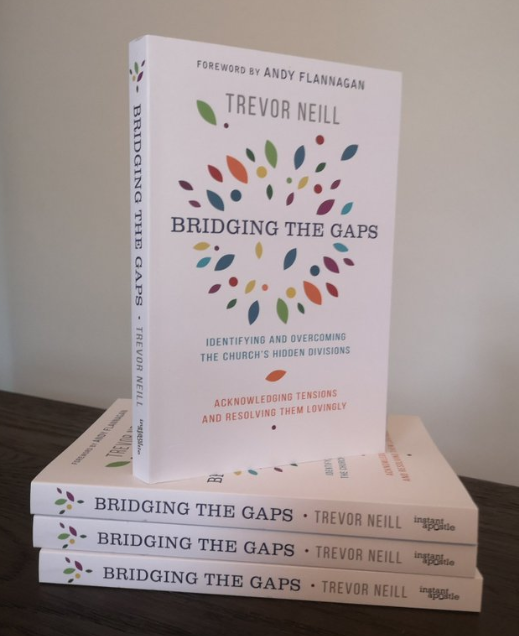Bridging the gaps
While there has been an explosion in church social action projects, our worship and preaching continue to focus on a narrower, more individualistic understanding of salvation, writes Trevor Neill.
Here's why we need to acknowledge this, and other hidden church divisions

Foodbanks… debt counselling… cafes to support those who are lonely or struggling with their mental health… winter night shelters… on and on the list goes. There’s a strong case for saying that the biggest change which churches in the UK have undergone in the last decade concerns the projects many now run to offer help to the poorest and most marginalised people in their communities.
There are a number of reasons for this rise in social engagement. One significant factor has been the continued reawakening of the social conscience of evangelicals which stretches back to the Lausanne Covenant of 1974 and its affirmation ‘that evangelism and socio-political involvement are both part of our Christian duty.’ Another more recent driver was the election of the coalition government in 2010, whose policies of austerity and the so-called ‘Big Society’ created a context in which the church stepped into a space being vacated by the state.
It’s hard to over-emphasise the speed and scale of the transformation which has taken place. Until the year 2000 no-one in our churches had heard of a foodbank, but now 1,200 are being run across the UK. Just over 20 years since its foundation, Christians Against Poverty is now running almost 300 debt counselling centres across the UK. Each of the churches I’ve ministered in has engaged in projects like these, including education and food poverty projects in Birmingham and a Winter Night Shelter in Croydon.
But as I’ve spent time with those who have led, volunteered or accessed these initiatives I’ve frequently been struck by what seems, to me, to be a disconnect which occurs when our actions take us in a different direction to our thinking. If our day-to-day activity is comprised of projects built upon acts of service that reflect the values of the coming Kingdom, but our Sunday worship and preaching continues to focus on a narrower, more individualistic understanding of salvation, eventually one of two things will have to happen. Either something breaks, because we can’t live with the dissonance any longer, or our theology needs to catch up with our practice.
 It was reflecting on these issues which brought me to the point of writing Bridging the Gaps, my first book which is published this week by Instant Apostle. One of the themes I explore in the book is what I describe as ‘The Gap between Individualism and Community,’ which I suggest can only be overcome by a theology which is big enough to account for systemic sin and injustice and affirms that God will bring his healing and reconciliation to bear on all things, and not just the individual lives of believers.
It was reflecting on these issues which brought me to the point of writing Bridging the Gaps, my first book which is published this week by Instant Apostle. One of the themes I explore in the book is what I describe as ‘The Gap between Individualism and Community,’ which I suggest can only be overcome by a theology which is big enough to account for systemic sin and injustice and affirms that God will bring his healing and reconciliation to bear on all things, and not just the individual lives of believers.
Part of my motivation in writing the book has been my concern that this chasm between what we do and what we believe doesn’t just lead to a lack of focus, but that it creates genuine confusion and anxiety within our churches.
It wasn’t long before I found myself reflecting on other ‘gaps,’ underlying tensions and stresses which exist within many congregations because of ways in which what we’re taught to believe isn’t always fit-for-purpose when it comes up against the reality of daily life.
Other gaps which I explore include those between our expectations and experience, between the abstract and the concrete and between activism and trust. Each chapter in the book concludes with questions which could form the basis of a conversation among a home group or church leadership team.
Bridging the Gaps is not a book which will provide definitive answers on all these issues. It was never written with that intention in mind. I do believe, however, that often, the first and most important step in dealing with the sort of tensions and contradictions it addresses, is to acknowledge their existence.
My hope is that the conversations started by the book will lead to more honesty and openness in our churches which, ultimately, might create the space in which God can be heard anew.
Image | Warren Wong | Unsplash
The Revd Trevor Neill is lead pastor of Selsdon Baptist Church in South Croydon. Trevor’s first book, Bridging the Gaps, is published by Instant Apostle
Do you have a view? Share your thoughts via our letters' page.
Baptist Times, 14/01/2020